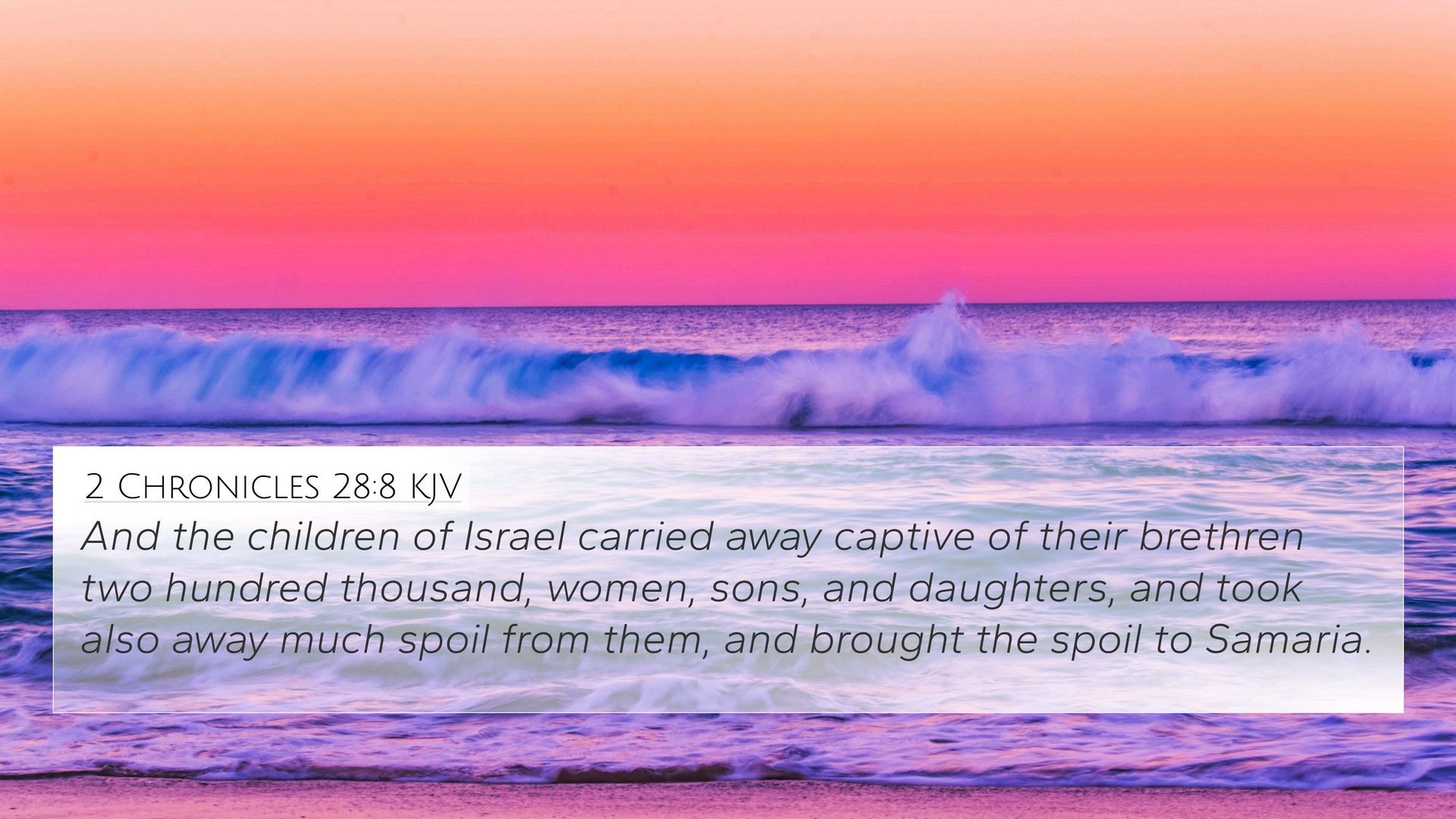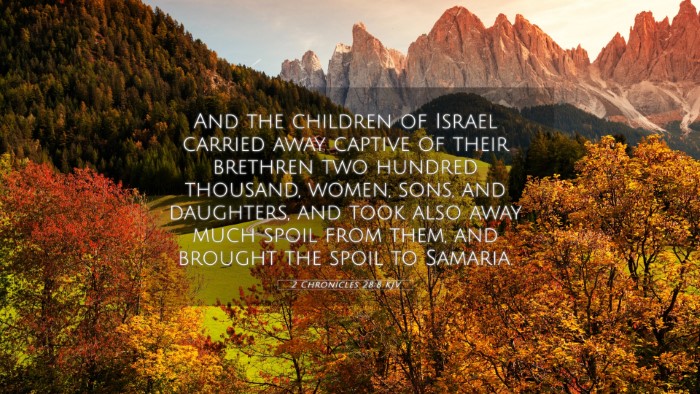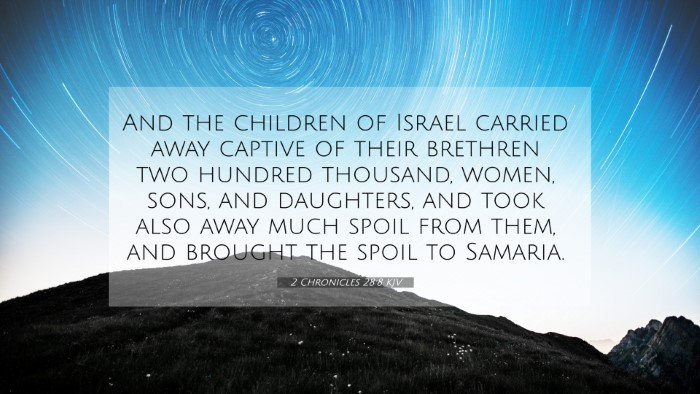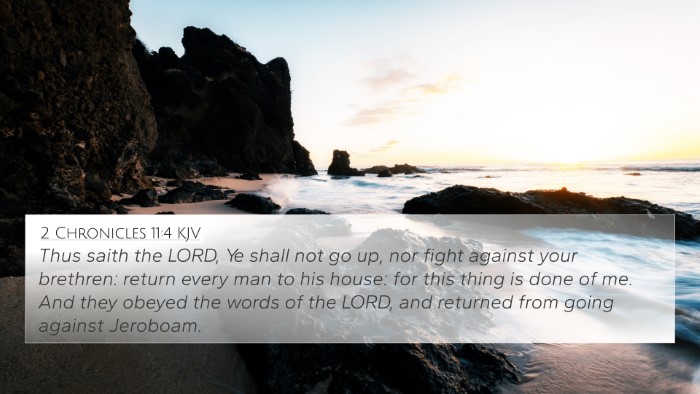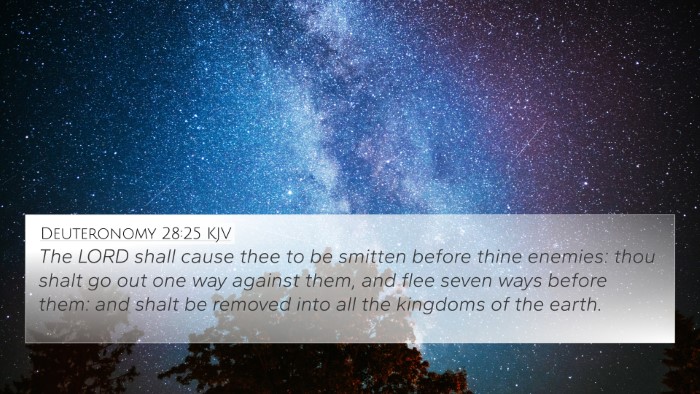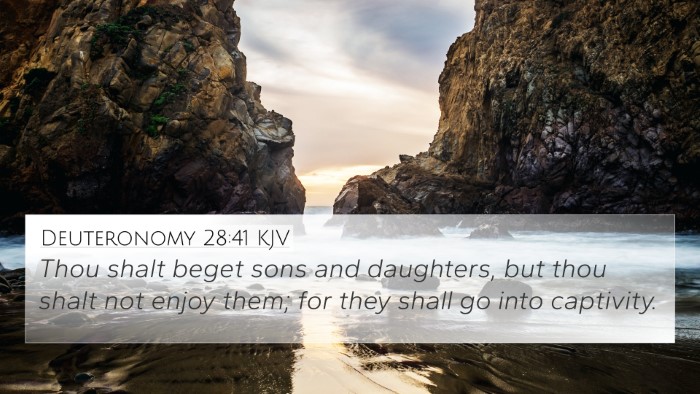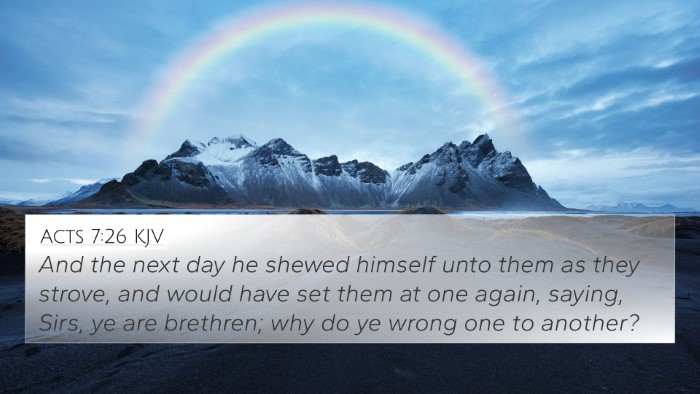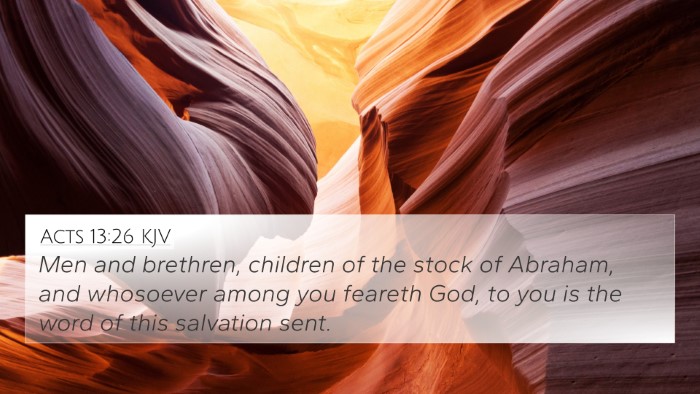Understanding 2 Chronicles 28:8
Verse Context: 2 Chronicles 28:8 states, "And the children of Israel carried away captive of their brethren two hundred thousand women, sons, and daughters, and brought them to Samaria: but a prophet of the LORD was there, whose name was Oded." This verse captures a crucial moment in Israel's history where conflict leads to captivity.
Summary of Insights
The capture of the Israelites by their brethren reflects a time of deep division and strife within the nation. Upon reflection, various commentaries offer profound insights into the implications of this event.
Commentary Insights
-
Matthew Henry's Commentary:
Henry emphasizes the moral decline of both Israel and Judah, leading to conflicts that result in bloodshed and captivity. The capture of relatives showcases the tragic consequences of disobedience to God's commandments and the devastating effects of civil strife. He highlights Oded, the prophet, as a pivotal figure intervening in this chaos, reminding the captors of God's mercy and justice.
-
Albert Barnes' Notes:
Barnes draws attention to the nature of the captivity, noting that it wasn't just a military conquest but a moral failure. The captured individuals were not only taken for physical conditions but also symbolize the spiritual state of the nation. He points out Oded's warning to the captors about the severe implications of their actions, urging them to return the captives, thus emphasizing God's ongoing desire for mercy amidst judgment.
-
Adam Clarke's Commentary:
Clarke elaborates on the historical context, underlining the importance of repentance. He suggests that Oded's role was significant not only for urging the captors to act justly but also for providing insight into God's character as one who desires repentance and reconciliation. This moment of grace serves as a reflection of God's nature amidst Israel's turmoil.
Bible Verse Cross-References
- 2 Kings 15:29: This verse discusses Israel's conquests, linking the themes of warfare and God's control over nations.
- Isaiah 9:21: Reflects on the divisions in Israel, pertinent to the captivity mentioned in 2 Chronicles 28:8.
- Hosea 13:16: Speaks of the consequences of Israel's sins and the ensuing captivity, showing the chain of events leading to judgment.
- Micah 2:4: This verse addresses the injustices within Israel, connecting themes of morality and divine retribution that resonate with 2 Chronicles 28:8.
- Ezekiel 39:23: Relates to the outcomes of God's judgment against nations, paralleling the captivity experience of God's people.
- Joel 3:1-2: Discusses God's judgment on the nations which ties back to the consequences faced by the Israelites.
- Zechariah 7:14: This verse highlights God's promise to restore His people, linking to the prophetic theme established in 2 Chronicles 28:8.
Thematic Bible Verse Connections
When studying 2 Chronicles 28:8, several thematic connections emerge with other scriptures. The narrative illustrates the ongoing struggle between judgment and mercy, a key theme throughout the Old Testament.
Comparative Bible Verse Analysis
Through a comparative analysis, the verse can be linked with both Old Testament and New Testament scriptures, showcasing the continuity of God's message:
- James 1:20: Explores the consequences of anger; relevant to the tensions that led to conflict among people.
- Matthew 5:7: "Blessed are the merciful," which connects to Oded's plea for mercy amidst judgment.
- Galatians 6:7: "Whatever a man sows, that will he also reap," reflects the outcomes of injustice faced by the captors.
Tools for Bible Cross-Referencing
Utilizing tools for Bible cross-referencing aids in a deeper understanding of themes and connections between verses:
- Bible Concordance: Useful for locating keywords and themes throughout the scriptures.
- Bible Cross-Reference Guide: Helps identify related verses quickly.
- Comprehensive Bible Cross-Reference Materials: Essential for serious studies or sermon preparations.
Conclusion
In reflective study of 2 Chronicles 28:8, the lessons are profound regarding the consequences of sin, the divinely ordained role of prophets, and the perpetual theme of mercy interwoven with judgment. This verse serves not only as a historical account but also as an enduring moral lesson for humanity. The cross-references cited above provide a framework for understanding the text’s implications on both individual and communal levels.
